The fastest way to cut carbon emissions is a ‘fee’ and a dividend, top leaders say
By Steven Mufson
A group of prominent politicians, economists and corporate executives is renewing its push in Congress for a plan that would tax carbon and refund all the money to Americans in payments of approximately $2,000 a year for a family of four.
As congressional Republicans work to come up with a response to climate change, and Democratic primary voters are flagging climate as a top issue, the Climate Leadership Council believes it has an opportunity to win supporters from both sides of the aisle by seeking deep emissions cuts, relying on markets and eschewing regulations.
“There is wide agreement among economists that this is the most effective and market-friendly way to reduce carbon emissions,” former Federal Reserve chair Janet L. Yellen said in an interview.
Carbon dioxide emissions account for most of the greenhouse gases that trap heat in the atmosphere, warming the planet.
Leaders of the council met over dinner Monday with nine of the 12 members of the Senate Climate Solutions Caucus, a bipartisan group of senators trying to come up with policies that will curb climate change, long a divisive issue in Congress.
Sens. Christopher A. Coons (D-Del.) and Mike Braun (R-Ind.), leaders of the caucus, have not endorsed any particular plan and issued a statement Wednesday saying, “We look forward to continuing these conversations with a wide range of stakeholders and perspectives from across the country.”
The council’s proposal is ambitious. It would impose what it calls a “carbon fee,” which in 2021 would be set at $43 a ton and rise every year by 5 percentage points above inflation. That would double the price of a ton of coal, tax natural gas at $2.28 per thousand cubic feet and raise gasoline pump prices by about 38 cents a gallon.
While the fees collected would go back to American families to help offset higher energy costs, they also would act as an incentive for individuals and companies to slash carbon emissions to a level lower than what President Barack Obama’s administration pledged under the 2015 Paris climate agreement, the council says. U.S. emissions would fall to around 32 percent below 2005 levels and continue to generate reductions.
The plan also calls for sweeping away many regulations now governing emissions because the carbon “fee” would make such restrictions unnecessary, the council said.
Several climate-related proposals are being discussed in Congress. The Energy Innovation and Carbon Dividend Act, including a carbon tax that would start at $15 a ton and rise by $10 a year, has won the backing of 80 House members, only one of whom, co-sponsor Rep. Francis Rooney (Fla.), is a Republican. All revenue would be returned to taxpayers.
On Tuesday, Sen. Thomas R. Carper (Del.), the top Democrat on the Senate Environment and Public Works Committee, introduced the Clean Economy Act, which would aim to achieve a net-zero-emissions economy by 2050. It would leave the setting of interim targets to the Environmental Protection Agency.
Nathaniel Keohane, senior vice president of the Environmental Defense Fund, said that the carbon fee-and-dividend plan needed sponsors in Congress. “The real test will be: Do they get a bill from someone with a voting card,” he said. “Do you have support on the Hill?”
Keohane said he liked many aspects of the proposal, such as a part mandating that the carbon fee would be increased even faster if it was failing to get enough greenhouse gas reductions. But Keohane said that EDF would still favor “an enforceable limit” set by regulation to ensure the targets are achieved.
Led by President Ronald Reagan’s treasury secretary James A. Baker and secretary of state George P. Shultz, the Climate Leadership Council proposal has plenty of high-powered backing. More than 3,500 U.S. economists, four former Federal Reserve chairs, 27 Nobel laureates in economics, and 15 of 16 living former chairs of the presidential Council of Economic Advisers. (Joseph Stiglitz, who was head of President Bill Clinton’s council, is the exception.)
More than a dozen senior executives from companies that support the tax-and-dividend plan recently joined the council and attended the dinner with the senators. Corporate supporters include the chief operating officer of ConocoPhillips, the chief executive of utility giant Exelon and the chief executive of Procter & Gamble’s largest division.
Other recent additions include Christiana Figueres, former executive secretary of the United Nations Framework Convention on Climate Change and one of the architects of the Paris climate agreement; Jamie Dimon, chief executive of JPMorgan Chase; and Ernest Moniz, Obama’s energy secretary and now a professor at MIT. Retired Gen. Jim Mattis, President Trump’s former defense secretary, also endorsed the plan.
“We will never solve our climate problem unless environmentalists work together with Big Business and Big Oil,” Figueres said in a prepared statement.
Ted Halstead, chairman of the Climate Leadership Council, said that this was “a Republican jailbreak moment” that would “lead to ever more Republicans coming on board.”
But the carbon fee-and-dividend plan has not caught fire in Congress, whose members are skittish about potential blowback from voters opposed to new taxes.
Rep. Garret Graves (La.), the top Republican on the House Select Committee on the Climate Crisis, said, “Democrats like sticks, and we like carrots.” Graves added later in a statement Wednesday night that “House Republicans stand united against carbon taxes and burdensome regulations.”
Baker, in a prepared statement, said that Democrats would get a carbon fee, and Republicans would “get rid” of “growth-limiting regulations that stifle our economy.”
Most taxes on consumption fall heavily on the nation’s lowest-income earners, but dividends change that distribution. Baker said that “70 percent of American families would get more money from the carbon dividend than they would pay in higher energy costs.”
Yellen said that “a core feature of this plan is protecting American households, particularly those most vulnerable to damage.” She said, “The most vulnerable lower-income groups do the best, in terms of coming out ahead.”
The council’s leaders say that the fee-and-dividend plan also addresses other economic problems. Many lawmakers support big spending programs for research and development, and many, including supporters of the Green New Deal, say that deficit spending is justified and should be seen as investments.
“We know that innovation and long-term investments are going to be critically important to solve this problem,” Yellen said. “This is the best way to incent those innovations.” She also said that the plan works “without ballooning the deficit.”
But Stiglitz, now teaching economics at Columbia University, said in an email that he opposes the idea of a dividend because “we need pricing + regulations + public investment,” such as public transportation and research and development. “That means we’ll need to spend at least part of the revenue [of the carbon tax] for public investment,” he said, adding that it was “more efficient” than refunding the carbon fee and “then trying to tax it back.”
You can read the full article on the Washington Post here.


